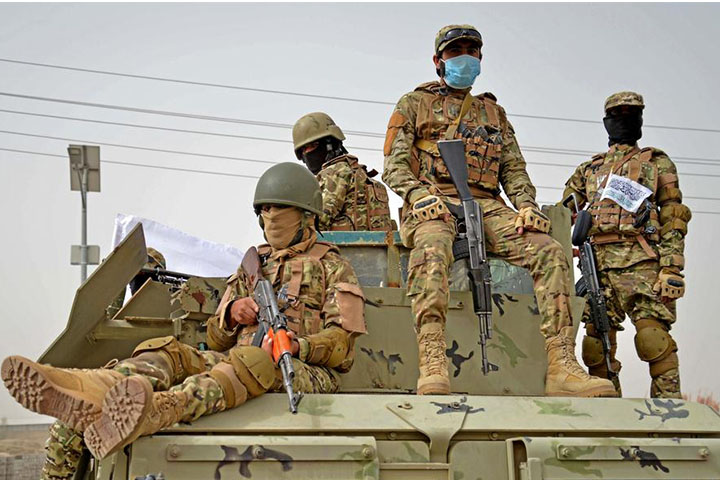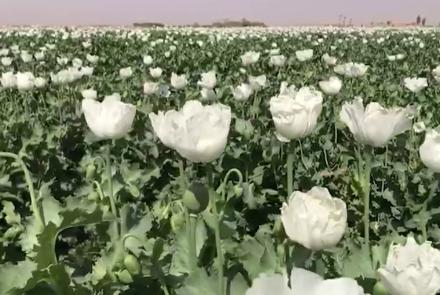Afghanistan: Opium supply drops 95% after Taliban drug ban
Opium production in Afghanistan has plummeted since the Taliban banned cultivation of the poppy plant, according to a UN report published on Sunday.
Afghanistan's Taliban rulers pledged to wipe out the country's drug industry, banning poppy cultivation in April 2022.
Poppy plants are the source of opium and heroin. Afghanistan was the world's biggest opium producer and a major source for heroin in Europe and Asia before the Taliban takeover.
What did the report on Afghan opium production say?
The report by the United Nations Office on Drugs and Crime (UNODC) found that poppy cultivation had dropped by an estimated 95% over the past year, from 233,000 hectares (575,755 acres) at the end of 2022 to 10,800 hectares in 2023.
Opium production also dropped from 6,200 tons to 333 tons in 2023.
According to the report, this year's harvest amounts to 24-38 tons of exportable heroin, much less than the 350-580 tons estimated for 2022.
Farmer's incomes have fallen by 92% this year, from an estimated $1.36 billion to $110 million.
In 2022, poppy crops made up almost a third by value of total agricultural production in Afghanistan.
The UNODC warned of the risk of people previously involved in the opium industry moving toward other illegal activities, like the trafficking of arms, people or synthetic drugs.
A September report from the same agency said that Afghanistan was the world's fastest-growing producer of methamphetamine.
Poppy ban could worsen humanitarian crisis
The UNODC said the Taliban crackdown on the poppy industry could have a negative impact on many Afghans' livelihoods and warned of "humanitarian consequences for many vulnerable rural communities."
"Today, Afghanistan's people need urgent humanitarian assistance... to absorb the shock of lost income and save lives," UNODC Executive Director Ghada Waly said.
Waly said other crops, such as cotton and wheat, were far more water-intensive than poppy plants. She added that Afghanistan had undergone "three years of consecutive drought."
"Afghanistan is in dire need of strong investment in sustainable livelihoods to provide Afghans with opportunities away from opium," she said.
Afghanistan has already been grappling with a severe humanitarian crisis sparked by decades of war, as well as natural disasters such as earthquakes and droughts.
Afghanistan has also been faced with an influx of returning refugees after neighboring Pakistan ordered over a million people to leave the country.
The crisis has also been aggravated by the steep drop in international aid deliveries after the Taliban, whose rule is not formally recognized by any country, overthrew the country's former government. The drop in international aid came as the Taliban severely limited the rights of women and girls as well as numerous other basic human rights in the country.
The Taliban took Afghanistan's capital, Kabul, in August 2021 amid the hasty withdrawal of US-led international troops.
04 Dec 2023,13:39














 Live Tv
Live Tv

